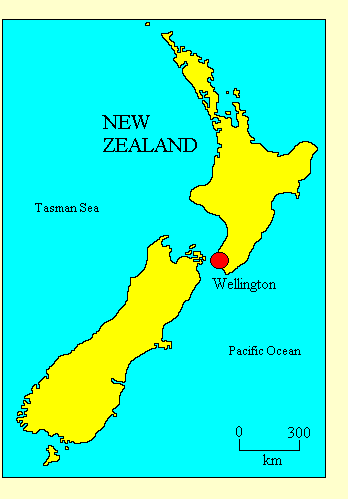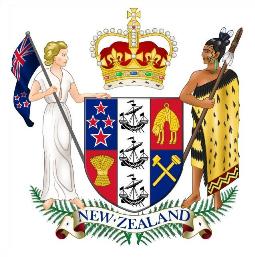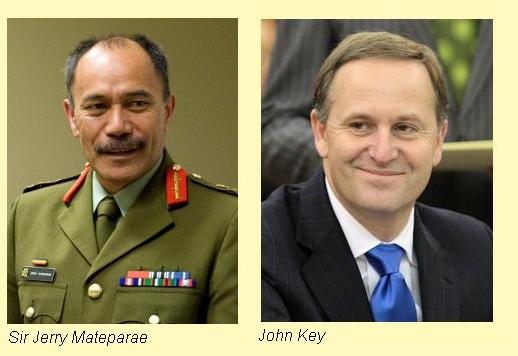

NEW ZEALAND
• Official name: New Zealand / Aotearoa
• Location: Pacific
• International organisations: Asia-Pacific Economic Co-operation Forum, Commonwealth of
Nations, Organisation for Economic Co-operation and Development, Pacific Islands Forum, United
Nations, World Trade Organisation
• Borders: None
• Coastline: Pacific Ocean, Tasman Sea
• Land area: 268,680 Km2
• Population: 4,300,000
• Annual GDP (PPP) per capita: US$27,300 (2009 CIA estimate). World ranking: 38
• Ethnicity: About 80% of New Zealanders are of European (predominantly British) descent. The Maori, a Polynesian people,
are 10% of the population. Pacific Islander 3.8%, Asian and others 7%.
• Languages: England and Maori are the official languages, but only 2% speak Maori as their first language. English is the
language of
government, business and communications and is univerally understood. Small minorities speak Hindi, Fijian, Chinese and
Polynesian languages.
• Religion: About 65% of the population are at least nominal Christians (Protestant 50%, Catholic 15%), although
religious practice has declined radically.
• Form of government: Constitutional monarchy and parliamentary democracy. New Zealand is divided into 16 regions but
these are not used for electoral purposes.
• Capital: Wellington
• Constitution: Before 1987 New Zealand did not have a written constitution, but operated according to the
conventions of the Westminster system. The New Zealand Constitution Act 1986
came into effect on 1 January 1987.
• Head of state: Queen Elizabeth II, Queen of New Zealand. The Queen came to the
British throne on 6 February 1952, and has held the title Queen of New Zealand since
29 May 1953. The Queen's functions in New Zealand are exercised by a Governor-General, appointed by the Queen on the advice
of the Prime Minister. Sir Jerry Mateparae took office as
Governor-General on 31 August 2011.
• Head of government: The Prime Minister, appointed by the Governor-General. The Prime Minister is the leader of the largest party in the legislature and is accountable to it.
• Legislature: New Zealand has a unicameral legislature, the House of
Representatives, which has 122 members elected for three-year terms. Of these 70 are elected from single-member
constituencies and 52 by proportional representation.
• Electoral authority: The New Zealand Electoral Commission administers national elections.
• Freedom House 2011 rating: Political Rights 1, Civil Liberties 1
• Transparency International Corruption Index: 93% (1 of 178 countries rated)
• Reporters Without Borders Press Freedom 2010 Index: 98.5% (8 of 178 countries rated)
• Heritage Foundation Economic Freedom 2010 Index: 82.3% (4 of 178 countries rated)

Political history
The Maori arrived in New Zealand in the 9th century, and were undisturbed until 1642, when the Dutch explorer Abel Tasman
discovered the islands. In 1769 James Cook explored New Zealand and claimed it for Britain. Informal British settlement
began in the 1820s, and conflict between Maori and settlers led to formal British annexation in 1840. The Treaty of
Waitangi guaranteed the Maori possession of their lands and fisheries. Settler violation of this treaty led to the Maori
Wars between 1843 and 1872.
An elected legislature and self-government were granted to the settler population in 1853, and in 1867 the Maori
won the right to a certain number of reserved seats in the legislature. The country was at first divided into provinces
but these were abolished in 1877. In 1893 New Zealand became the first country in the world to give women the vote. In
1907 New Zealand became a self-governing Dominion within the British Empire. Legislative links with Britain were severed
by the Statute of Westminster in 1931.
Since the 1930s New Zealand politics have been dominated by competition between the
New Zealand Labour Party, a trade-union based social-democratic party, and the
conservative New Zealand National Party. Labour came to power in 1935 and
introduced pioneering social legislation, retaining office until 1949. Labour and National have alternated in office
since. Labour under Helen Clark held office from 1999 to 2008, when
John Key led the National Party back into government.
Since the introduction of
proportional representation in 1993, a multi-party system has evolved. The National Party has lost ground to the
free-market radical
ACT New Zealand and the centrist
United Future New Zealand. Labour faces competition from the
Green Party and
Jim Anderton's Progressive Party. The Maori, who before 1993 voted solidly
Labour, now support the Maori Party.
The extreme right-wing New Zealand First Party lost its seats at the 2008 election.
Updated November 2011
|
